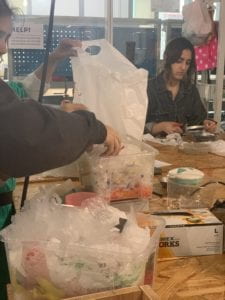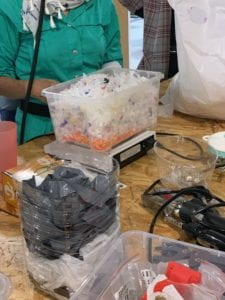Name: Eva Solo
Date: 06/11/19
Professor: Marcela Godoy
Reading Response:
From the reading from Collective Responsibility, Social Innovation in China, I understood that identifying a problem is far easier than identifying what the first steps to innovation could be when the current model seemingly works for those involved. In the context of China, the population is among the largest in the world and its developments are rapidly changing from year to year, affecting not only the locals but the global world too. The benefit of this case is that “the replication structures and processes are still in the earliest phases”(13) thus have room for improvements and adjustments. When realising that the change can be implemented in the design stages and then scaled out, one must remember that this process is much more related to science than art as Carol Chyau states. This was a new idea for me, because I considered brainstorming to be a free flow of ideas, with no boundaries, and no restrictions. When I consider her message, I realise that as much as this process should be free, it also should account the infrastructure of today’s world and its needs. Following this thought the mention of their findings that “[they] found out from [their] meetings with entrepreneurs whose organisations have foreign roots, formal or informal, the key to surviving and success in China is not just overcoming these technical barriers, but a clear path towards localisation supported by the right value proposition and strong leadership” (17) conveys a heavy emphasis to understanding the targeted market. Each community, either by country, or income levels, have differentiating perspectives on sustainability and its affect, while I propose that we should to some extent universalise them for the best possible outcome. Starting with a large population, such as the Chinese, could serve as a model of success for other smaller scale pools of people, and although this process is usually done in reverse, I think there is a lot of opportunity in these boarders to set examples for the rest.
The author of Multiple-Helix Collaboration for the Development of a Circular Economy, Mats Larsson, highlights how different types of communities should approach a change to the current lifestyles they indulge in. Education is an important element when creating transformational frameworks, because lack of information is usually the determining factor in choosing harmful outcomes. The different examples provided about Europe all involve some level of government participation. How have I not considered this before? This was the first time I understood the opportunity that can be explored with the help of the movements worldwide. I think the distance between the citizens and their authority figures is where my perspective stagnated. In most countries it is hard to express feedback to the governments, and the election process is usually driven by other factors. The urging desire for change can sometimes be expressed in obscure ways. The past US election stands as an example of this, in my opinion, because when people focus on what they don’t want they are more likely to choose an option based on negative feelings from the past. I rase the question: Why are we told that religion and politics should not be discussed openly? Why are these topics so controversial? Maybe if we approached authority with a more humane and down-to-earth perspective, we could communicate our considerations? It is difficult to reconsider the entire infrastructure of control in our world, but we could all to some extent agree that the current circulation is not something we support overall. It goes back to the ego-driven perspective, if it doesn’t ‘affect’ me than it doesn’t matter. But it does affect all of us, and in more ways than we can see on the surface level. I personally don’t understand why these burning ecological questions are not at the top of our governments’ priority list. Are they just arising, and are too new? When will we make ecological awareness a priority?
Watching the video My Perspective On Profit also made me realise how much of a privilege it is to incorporate sustainability in a company. It is a privilege to understand these concepts and better yet be active on their behave, but how do we make this universal? I understand that the need to feed one self is greater than ecological considerations, but if we wait for all of the world to overcome the poverty line, there might not be an Earth to save. We could try to balance and slowly work on all of these issues at once, which I think is the mindset we see showcased, but once again I am curious how is sustainability for the betterment of our own life-quality not emphasised to the extent that it should be.
Workshop Reflection:
The Precious Plastic session was very informative as we got to learn on this organisation’s work directly in Shanghai. The talk covered their experimentation and impact not only on the local community, but how they share information globally with their other sites. The emphasis on teaching people how to produce this at home was something that stood out to me the most, especially considering my own final project.
We covered different machinery, ways to fuze plastic, and the real life use of these innovations. Seeing earring or the coasters that I would want for myself further broadened my perspective on how impactful organisations as such are. Going through the process of shredding and heating and moulding the plastic ourselves made me consider 1) how much more us I can get from the materials I used to label as waste and 2) how difficult it is to produce products – which then took my back to my on going thought loop of my own consumption habits.
I looked on the Precious Plastic World Map to find a few pins in Lithuania. Although none of them were ongoing projects, they were all proposals from people with innovative ideas. A few were in my hometown, and I sent a few messages to investigate if any proposals were in action and although I haven’t heard back I see opportunity to find people to talk to when I am home and see what type of change we could implement. Lithuania being a fairly small community, and my capital a smaller percentage of that, could be a test run for me to see what type of impact I can make with all of the knowledge I am gathering oversees.






Leave a Reply